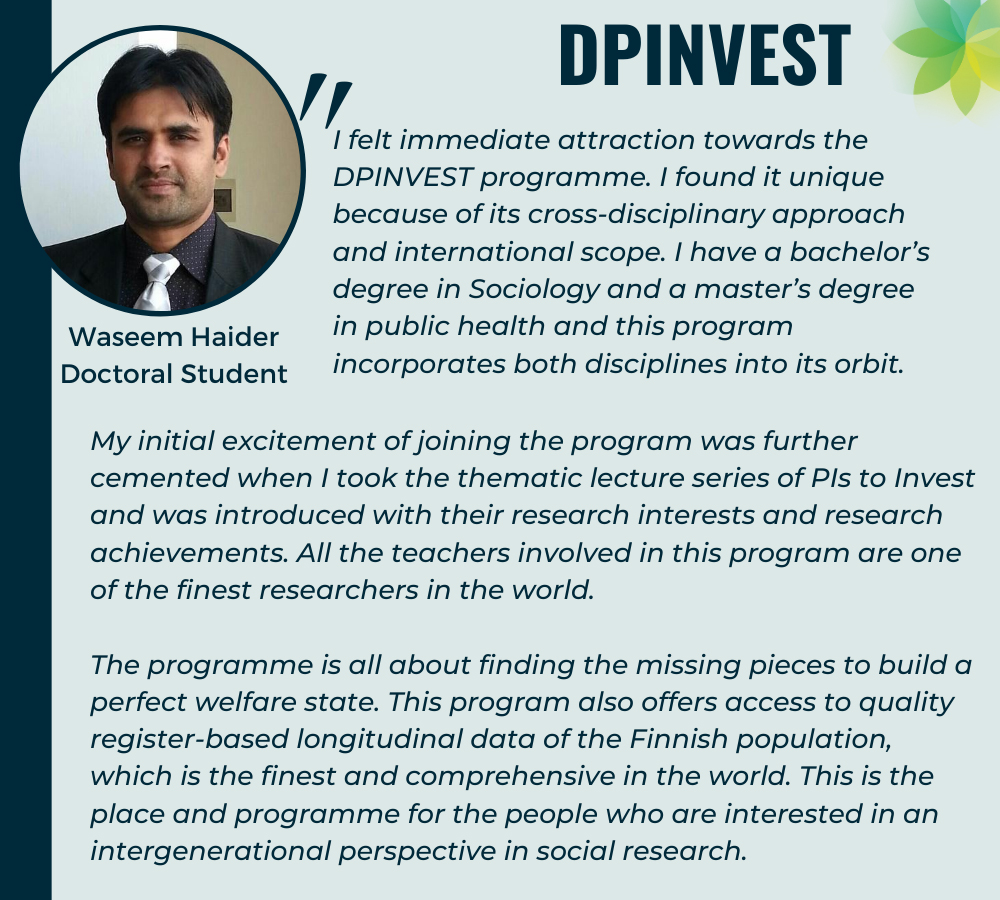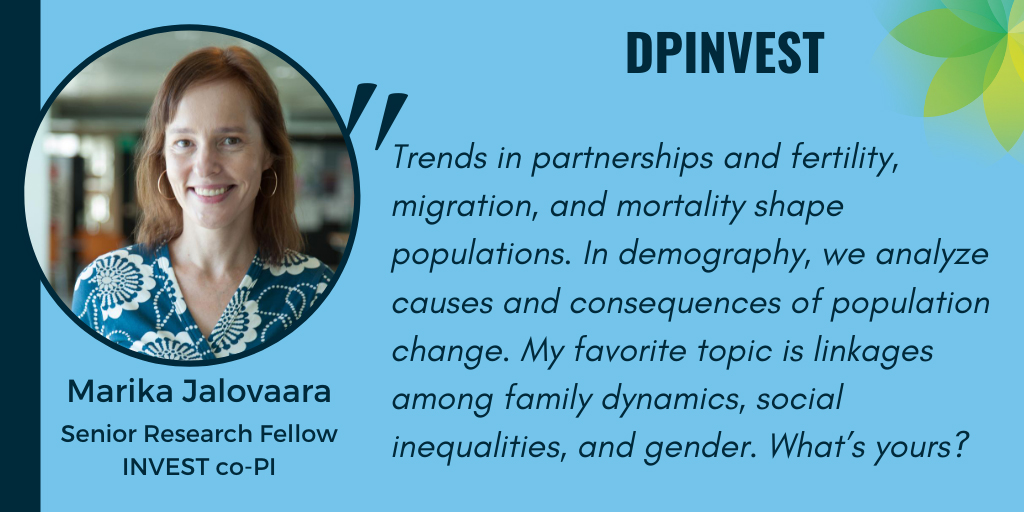DPInvest
Doctoral Programme in Inequalities, Interventions and New Welfare State
DPInvest is a cross-disciplinary, international PhD programme, located in the INVEST Research Flagship Centre. Utilising its world-class scientists for teaching and supervising students, it educates specialists in social and behavioural sciences with advanced quantitative research skills.
About this degree
Doctoral candidates in DPInvest pursue studies either in the Faculty of Social Sciences or in the Faculty of Medicine:
The expertise and know-how of a doctoral candidate will develop within the following themes in social and behavioural sciences:
- Social inequalities
- Child and youth development in context
- Welfare state services, benefits, and policy processes
- Population and family demographics
- Child and adolescent epidemiology
- Prevention and intervention research
- Advanced statistical methods
- Causal inference and non-lab experiments
The degree (40-50 ECTS) is relatively structured and it includes obligatory studies, optional studies, and the doctoral research and a public defence of the doctoral thesis. Studies include substantive courses, advanced methodological training, seminars, multidisciplinary thematic workshops, mobility studies, and a wide range of research field specific courses and courses that support scientific and professional skills.
The doctoral dissertation is an independent research work, with a research plan, intermediary reports, and the public defence. The thesis should demonstrate the candidate’s deep understanding of the chosen research topic and the ability to design and conduct research independently and to apply scientific methods to solve research problems.


Contact:
University Lecturer
Sanni Kotimäki
The Coordinator of the Doctoral Programme:
Kirsi Tammi
socpostgraduate@utu.fi

